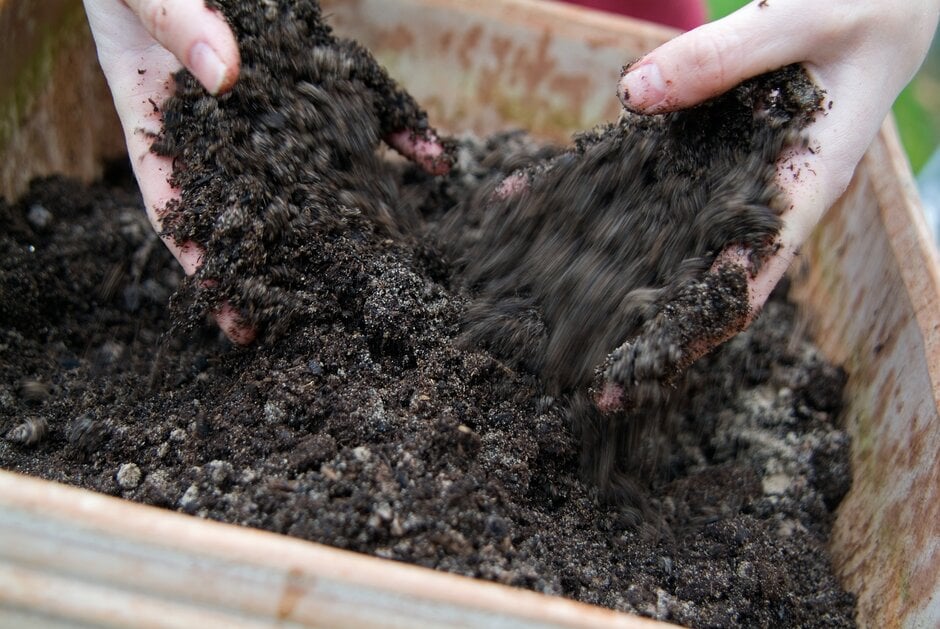How to make your own potting mix
Making compost from materials you have in your garden is a budget and environmentally friendly way to pot up your plants. Here you can learn how to make your own general-purpose potting mix in four simple steps.

Quick facts
-
Most plants can be grown in a homemade compost mixture
-
A good compost should be crumbly, with no large lumps, and should drain well when watered yet also be able to retain some moisture
-
There is no need to add fertilisers to homemade mixes as long as a good quantity of organic matter has been included
Getting started
Buying quantities of bagged
Here's what you’ll need to make your own compost mix:
Tools
-
A shovel
-
A garden sieve (or metal colander)
-
Gloves
-
An old compost bag to store leftover mixture
Ingredients
-
Garden soil – adds stability to your mix and its particles hold on to water and
nutrients -
Organic matter, like homemade garden compost, leafmould or well-rotted manure – adds nutrients as its broken down and creates air spaces so roots can breathe
-
Sharp sand or grit – to improve drainage
How to make your own potting mix in four simple steps
-
Collect and prepare some garden soil to use as a base for your compost mix
Taking spadefuls from around your garden prevents you lowering the soil level in just one area. Remove any weeds from the soil, sieve it to remove stones and debris and set aside.
-
Gather some organic matter to enrich your mix
Materials like homemade garden compost, leafmould or well-rotted manure can be made at home or locally sourced. Sieve to remove any large clumps and set aside.
-
Mix the ingredients
A mixture of 70% garden soil and 30% organic matter creates a good general potting mix for planting up trees, shrubs, perennials and fruit. If your garden soil is heavy, reduce the soil content by around 10% and add some sharp sand, grit, or bulky organic matter in its place to improve drainage.
-
Fill your containers for planting
Store any leftover mixture in an old compost bag, labelling it so you know what’s inside. Keep this somewhere cool and dry until you next need to use it.
Tweaking your mix
Garden soil is the main ingredient of homemade compost, but it varies considerably from garden to garden, with different proportions of clay, sand and loam and therefore different water and nutrient-holding abilities.
It’s important to bear in mind the type of soil you have when using it as a base for compost mixes, adjusting the ratio of ingredients accordingly:
-
Clay soils are fertile but often slow-draining, so mixes based on clay soil will need more sand, grit or bulky organic matter adding for drainage
- Sandy soils tend to drain well but don’t hold on to nutrients, so mixes based on sandy soil need a higher proportion of rich organic matter like well-rotted manure.
The plants you are intending to grow will also determine what the compost mix consists of. Trees and shrubs in pots, being long-term plantings, need a good amount of garden soil in their mixes, while short-term bedding plants need a higher proportion of organic matter to provide the nutrients for a dazzling display.
Tweaking your mix, by adding a bit more of some ingredients and a bit less of others, will help you find one that works for you.
Get involved
The Royal Horticultural Society is the UK’s leading gardening charity. We aim to enrich everyone’s life through plants, and make the UK a greener and more beautiful place.